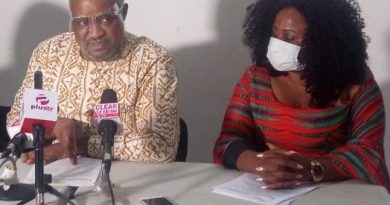THE HIDDEN COST OF ILLEGAL MINING IN NIGERIA: Unmasking a National Crisis

Perspectives with Dr. Iyke Ezeugo
A Dark Shadow Over Nigeria’s Mineral Wealth
In the heart of Nigeria’s mineral-rich belts, beneath the surface of its vast rural expanse, illegal mining has grown from a dismissed nuisance into a national crisis. This problem not only threatens the environment but also the very fabric of Nigerian society. Behind the glitter of gold and precious stones lies a darker tale—one of environmental degradation, corruption, insecurity, and human exploitation. Powerful syndicates, backed by both local and international actors, control these illegal mining operations, while government efforts are crippled by systemic weaknesses and corruption. The unchecked devastation caused by illegal mining drains Nigeria’s wealth and threatens national security, leaving local communities to bear the heaviest burdens.
Foreword: A Call to Action
As a forensic researcher dedicated to ethical integrity and purposeful social construction, the writer, recognizes the importance of positive social engineering for national development and stability. This report has been crafted to raise awareness and encourage public engagement in advocating for responsible governance and leadership. While only a fraction of the findings are shared here, they are only intended to provide actionable insights purposed to put pressure on authorities to act rightly and in a timely manner as the country is bleeding profusely. Far more unsettling details lie within our full investigation report —details that expose leadership failings, collusion, economic sabotage, and the deepening rot in our nation’s governance. Perhaps this will come in the next edition if nothing is done to rescue the sector.
This decay is not recent; it has accumulated over time. However, if today’s leaders are not part of this festering corruption, they must now seize the opportunity to redeem themselves for posterity sake. Citizens, too, bear responsibility. Blaming only those in power while turning a blind eye to one’s complicity, whether through passive participation or apathy, will not shield anyone from the far-reaching consequences of this deepening crisis.
1. Shadow Economy of Illegal Mining: The Hidden Billions
The illegal mining industry in Nigeria operates on an immense scale, both locally and internationally. While official reports suggest the nation loses approximately $9 billion annually due to illegal gold mining, industry insiders argue that the actual figure is much higher.
– Unreported Mineral Wealth: Illegal mining cartels often collaborate with corrupt officials and local chiefs to underreport production. Some mining companies declare only a fraction of their output, with the rest siphoned out through illicit channels. According to confidential reports, nearly 70% of gold produced in northern Nigeria remains unaccounted for.
– Smuggling Networks: Minerals like gold from Zamfara and Kaduna are regularly smuggled through porous borders into neighboring countries, then on to international markets in Dubai, India, and China. These operations are well-coordinated, with smugglers exploiting weak border security.
– The Chinese Connection: Chinese nationals play a significant role in illegal mining activities in Nigeria. Operating under the guise of legitimate businesses, they extract valuable minerals and smuggle them back to China. In one 2019 operation, Nigerian authorities uncovered a syndicate smuggling $50 million worth of gold annually.
2. Corruption and Collusion: Enablers of Illegal Mining
Illegal mining persists due to the involvement of govern ment officials, traditional rulers, and security forces. These actors provide protection and logistical support to cartels in exchange for a share of the profits.
– Government Officials Complicity: Government officials in regions like Zamfara have been found accepting bribes in exchange for allowing illegal mining to continue. Leaked documents reveal some were paid in gold dust, further contributing to environmental and public health disasters.
Security Forces’ Involvement: In several cases, security forces deployed to monitor mining areas are instead complicit in the operations. These forces are often bribed to turn a blind eye or actively shield illegal miners from government crackdowns.
– Political Interference: National efforts to combat illegal mining have often been sabotaged by powerful political figures with financial interests in these operations. Raids are frequently called off or delayed, allowing the illegal mining to continue unchecked.
Reflective interlude 1
Unless you visualize Nigeria as a critically injured patient in the ICU, you may not grasp the severity of the illegal mining crisis. Imagine a nation hemorrhaging from multiple economic arteries, its life force ebbing away steadily and speedily.
Desperate efforts are made to stabilize it with massive financial transfusions in direct taxing of the masses, indirect taxes on fuel, electricity and amenities, borrowing from multiple sources, etc. But the alarming reality is that the blood loss from a single, seemingly insignificant wound – illegal mining – surpasses the combined influx from all transfusion lines.
In this scenario, wouldn’t the most logical response be to pause running around for more borrowed blood prioritize stemming the bleeding first? Shouldn’t we focus on sealing the leaking vessels, plugging the illicit outflow, before attempting to revitalize the economy?
3. Environmental Devastation: Crimes Against Nature
The environmental impact of illegal mining is catastrophic. Large-scale deforestation, water pollution, and ecosystem destruction are rampant.
– Deforestation: Illegal mining operations in states like Osun, Ondo, and Ekiti have led to significant deforestation, with hundreds of hectares of forest cleared each year.
– Mercury and Cyanide Contamination: The widespread use of mercury and cyanide in gold extraction has resulted in toxic contamination of rivers, groundwater and farmland. This poses severe health risks to local communities and wildlife.
– Lead Poisoning: The lead poisoning crisis in Zamfara State, which claimed the lives of over 400 children in 2010, continues to affect mining communities today. Despite cleanup efforts, the lasting damage is evident in ongoing health challenges among residents.
4. Security and Armed Groups: A Deadly Nexus
Illegal mining is closely linked to insecurity in northern Nigeria, where bandit groups, insurgents, and militants use mining profits to fund their operations.
– Funding Terrorism: Gold smuggling from Zamfara provides a crucial revenue stream for armed groups, who use these profits to purchase arms and ammunition. The nexus between illegal mining and terrorism has escalated the region’s instability.
– Banditry and Mining Control: Bandit groups exert control over illegal mining sites, demanding “taxes” from miners. Failure to comply often results in violent reprisals, including mass killings and abductions.
5. The Role of International Markets
Illegal mining in Nigeria is part of a global supply chain. International buyers and refiners, particularly in Dubai, India, and China, fuel the trade by turning a blind eye to the origins of minerals they purchase.
– Lax Scrutiny: International markets often fail to verify the source of minerals, allowing illegally mined Nigerian gold to enter global supply chains. This lack of due diligence perpetuates the exploitation of Nigerian resources.
6. Government Response: Limited Success, Ongoing Challenges
Efforts to curb illegal mining have been largely ineffective, hampered by corruption and inefficiency.
The PAGMI Initiative
The Presidential Artisanal Gold Mining Development Initiative (PAGMI) sought to formalize artisanal mining, but only a fraction of miners have registered. Bureaucratic hurdles and corruption have limited the program’s effectiveness.
– Regulatory Gaps: Nigeria’s regulatory framework for mining remains outdated, and enforcement of safety and environmental standards is minimal. Less than 10% of mining operations undergo proper environmental impact assessments.
7. The Human Cost: Exploitation and Health Hazards
Illegal mining exploits vulnerable populations and exposes them to severe health risks.
Exploitation of Workers: Artisanal miners, including children, work in dangerous conditions, often for little pay. These miners are exploited by middlemen and local bosses who take the majority of the profits.
Health Risks:
Miners are at risk of developing chronic respiratory illnesses due to exposure to dust and toxic chemicals. Silicosis is common among gold miners, and cases of mercury poisoning are widespread in mining communities.
8. State Governments’ Involvement: The Zamfara Gold Case Study
In September 2020, the Zamfara State government made headlines by announcing the sale of gold worth ₦5 billion to the Central Bank of Nigeria (CBN), as part of a gold-purchase program aimed at diversifying the nation’s reserves. This sale, however, raised many questions concerning the origins of the gold and the legality of state involvement in mining activities. It highlighted the complexities of Nigeria’s mining sector, the role of state actors, and potential legal and governance loopholes.
How Did Zamfara State Acquire the Gold?
Zamfara State, situated in northern Nigeria, is known for its rich gold deposits, attracting both legal and illegal mining activities. While artisanal and small-scale mining is common in the region, the Zamfara government claimed that the gold sold to the CBN came from local artisanal miners operating legally under the state’s mining investment programs.
Nevertheless, the state’s direct involvement in the sale of gold raised legal concerns. Mining and control of mineral resources in Nigeria fall under the exclusive jurisdiction of the federal government, as outlined by the Nigerian Minerals and Mining Act of 2007. This legislation stipulates that mineral exploration, mining rights, and the sale of minerals such as gold must be managed and regulated by federal agencies, particularly the Ministry of Mines and Steel Development.
Is Zamfara Alone in Mining Outside Federal Oversight?
The Zamfara gold sale brought attention to a grey area in Nigeria’s mining laws regarding the role of state governments. Despite mining being federally regulated, some states, especially resource-rich ones, have engaged in mining operations under the guise of formalizing artisanal mining. Such activities, if not properly licensed or approved by federal authorities, may bypass federal oversight and could even be classified as illegal. Imagine the implications if oil-producing states decided to drill and sell oil to the federal government or private entities on their own terms.
State-Level Mining Involvement
A. Zamfara State: The state’s facilitation of gold sales raised legal concerns about whether the operations adhered to federal regulations. Such actions could fragment revenues and undermine fiscal federalism, setting a dangerous precedent for other resource-rich states to circumvent federal revenue-sharing agreements.
B. Katsina State: With significant gold deposits, Katsina officials have also been involved in formalizing artisanal mining. However, doubts persist about whether these operations fully comply with federal laws.
C. Osun State: Osun, rich in gold and other minerals, has similarly supported artisanal mining. Concerns arise over transparency and federal regulation of these activities.
D. Niger and Kogi States: Known for deposits of tin, gold, and other minerals, both states have reported state-level involvement in mining, raising questions about federal compliance.
E. Plateau State: Known for tin and columbite mining, Plateau has seen persistent state involvement in poorly regulated artisanal mining, resulting in environmental degradation and loss of federal revenues.
Legal Status: Could These Be Classified as Illegal Mining?
If state governments or state-supported entities engage in mining operations without obtaining necessary federal permits or fail to adhere to federal regulations, such activities could be classified as illegal mining. Further, state actors facilitating mineral smuggling or permitting environmentally destructive mining without regulatory oversight could also fall into this category. The distinction between legal and illegal mining blurs when states attempt to control natural resources without full compliance with federal law.
Estimated Scale of Unregulated Mining
The exact scope of state-involved or unregulated mining is difficult to determine due to the clandestine nature of many operations. However, reports from civil society organizations, mining associations, and investigative journalists indicate widespread illegal mining activities, especially in states rich in minerals such as gold, tin, and columbite. Over 80% of artisanal mining activities in Nigeria are estimated to fall outside formal federal oversight, potentially involving billions of dollars’ worth of minerals.
Key Minerals and States Involved in Unregulated Mining
i. Gold:
– *States Involved:* Zamfara, Osun, Niger, Kaduna, Katsina, Kebbi
– Illegal Activity Estimate: Up to 70% of Nigeria’s gold is believed to come from illegal mining operations.
2. Tin and Columbite:
– States Involved: Plateau, Kogi, Niger, Bauchi
– Illegal Activity Estimate: Artisanal and unregulated mining of tin and columbite is on the rise, particularly in Plateau State.
3. Lead and Zinc:
– States Involved: Zamfara, Ebonyi, Nasarawa, Bauchi
– Illegal Activity Estimate: Lead poisoning incidents in Zamfara are linked to unregulated artisanal mining of gold, which often involves lead extraction.
4. Iron Ore:
– States Involved: Kogi, Kaduna, Zamfara
– Illegal Activity Estimate: Reports indicate illegal mining of iron ore deposits, especially in Kogi State.
5. Gemstones (Sapphire, Tourmaline):
– States Involved: Nasarawa, Taraba, Bauchi
– Illegal Activity Estimate: Much of Nigeria’s gemstone trade operates underground, with illegal operators smuggling gems to international markets.
State-Federal Tensions and Legal Loopholes
Tensions between state and federal governments over control of natural resources have created legal grey areas. Some state governments, desperate for revenue, exploit weak federal enforcement to engage in mining operations. This raises questions about the federal government’s actual control over Nigeria’s mineral resources, particularly when state actors operate within the mining value chain without transparency or federal oversight.
The involvement of state governments in mining raises complex legal and ethical concerns. While states argue they are formalizing artisanal mining, these activities may constitute illegal mining and undermine federal regulations. The Zamfara gold sale is a clear example of how states capitalize on mineral resources, but it also emphasizes the need for stronger oversight to prevent the exploitation of Nigeria’s mineral wealth.
Reflective interlude 2
It’s astonishing that Nigeria is celebrating a $3.3 billion investment announced by China during the last visit of President Tinubu to China. We celebrate as if we don’t know this will potentially lead to between 25 and 30 years of debt servitude and over $10 billion losses in repayment price, while compromising sovereignty. Meanwhile, Nigeria loses billions annually to illegal mining, particularly in gold, with estimated losses exceeding $10-12 billion yearly. One company alone has exported over $5 billion worth of gold, excluding other stolen minerals and precious stones.
Nigeria boasts 44 commercially viable minerals, valued at approximately $700 billion. However, the mining sector contributes less than 1% to GDP. This disparity highlights the urgent need to address illegal mining and optimize the sector.
Key Areas to Address:
– Illegal Mining: Plug estimated losses of $10-12 billion annually in gold alone
– Solid Mineral Development: Develop one-quarter of Nigeria’s 44 commercially viable minerals, worth $700 billion
– Economic Diversification: Leverage the mining sector to contribute significantly to GDP and reduce dependence on oil and gas
– Sovereignty: Assess the risk of losing control over prime assets and compromising national security through foreign borrowing arrangements
By addressing these areas, Nigeria can turn its fortunes around. Prioritizing sustainable mining practices, empowering women in mining, and ensuring environmental responsibility is crucial. It’s time to rethink priorities and focus on developing Nigeria’s resources for economic growth and prosperity.
The Solid Minerals Development Fund aims to drive private sector-led investments in Nigeria’s mining sector. With the right actions, Nigeria can unlock its mining potential, reduce economic losses, and secure its sovereignty.
A National Crisis Demanding Urgent Action
Illegal mining in Nigeria is more than an environmental disaster; it is a threat to national security, human welfare, and the nation’s future. Without decisive reforms and coordinated action from both government and citizens, the crisis will continue to deepen, leaving a devastating legacy for future generations.
Dr. Iyke Ezeugo is a Forensic Researcher, a Social Impact Expert, and Satirist who uses his perspectives and parodies to challenge the status quo, spark debates, and inspire fresh perspectives on public affairs through insightful intellectual injections.




